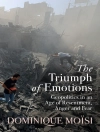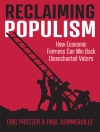In the contemporary context of increasing inequality and various forms of segregation, this volume analyzes the transition to neoliberal politics in Santiago de Chile. Using an innovative methodological approach that combines georeferenced data and multi-stage cluster analysis, Méndez and Gayo study the old and new mechanisms of social reproduction among the upper middle class. In so doing, they not only capture the interconnections between macro- and microsocial dimensions such as urban dynamics, schooling demands, cultural repertoires and socio-spatial trajectories, but also offer a detailed account of elite formation, intergenerational accumulation, and economic, cultural, and social inheritance dynamics.
Cuprins
1. Introduction.- 2. Social Mobility over Time and in Space: Ascending Residential and Social.- 3. Common Ground: On the Centrality of Residential and School Choice.- 4. Frantic Lives and Practices of Socio-Cultural Differentiation.- 5. Neither Conservatives nor Progressives: Fragmentation in the Cultural Repertoires of the Upper Middle Class.- 6. Inheritors, Achievers, and Incomers: Wrapping up a Multidimensional Approach to Social Reproduction.
Despre autor
María Luisa Méndez is Principal Investigator at the Center for Social and Cohesion Studies (COES) and Head of the Sociology Department at Universidad Diego Portales, Santiago, Chile.
Modesto Gayo is Associate Professor at Universidad Diego Portales, Santiago, Chile.












